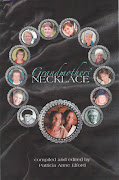On Sunday I attended an inspiring Books and Brunch session sponsored by a local independent book store, Blue Heron Books. Featured speakers were Kim Echlin and Marina Nemat. Despite the fact I hadn’t read either of their most recent books, The Disappeared and Prisoner of Tehran, both speakers moved me deeply and got me thinking.
Kim Echlin’s novel is a love story, a story of loss and longing set amidst the Cambodian genocide of the Pol Pot regime. Admired by the judges for her sensual details and spare prose, it t was shortlisted for the Giller prize in 2009. She spoke to the group of choosing to bear witness to the Cambodian horrors and family impacts of the killings by making it the backdrop for her fictional characters. A choice to write fiction.
Marina Nemat’s shocking memoir is a true tale of her imprisonment at the age of 16 by the Khomeini regime in Iran. She was tortured, beaten, forced to marry her torturer. She suffered beyond belief, yet survived to tell the story. I was almost in tears as she spoke. But, I wondered, when she had to steel herself psychologically in order to survive, how much of the detail can she honestly remember? I know she writes a disclaimer that she’s done her best. The rules for memoir now include using dialogue and other techniques of fiction writing. I was so moved by her story and determination to speak out against oppression wherever it occurs. Still I wondered about choosing to write a memoir. Did she ever consider writing it as fiction?
As I think about my own story, I wonder about the difference between fiction and memoir, and how do you choose the best form for your story? Do you write a healing memoir as Marina has done, remembering as best you can after a traumatic experience and adding dialogue to make the story interesting? Or do you write your story as fiction, still telling the story you intended to tell, but without the constraints of a memoir format?
Subscribe to:
Post Comments (Atom)






No comments:
Post a Comment